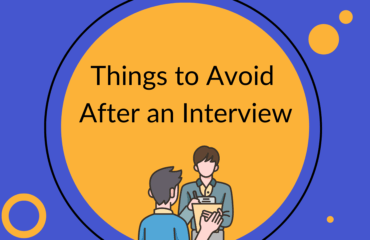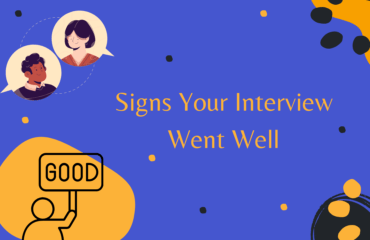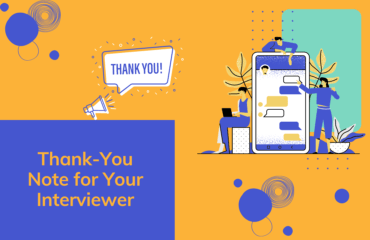Table of Contents
Dear job seeker, have you ever heard of the term “ghosting?” It’s an expression that we often use when a person we’ve been interacting with has suddenly stopped replying to our calls or messages without an explanation. Even though this expression was initiated to describe similar behaviors in romantic relationships, we also use it in other areas, such as recruitment. More specifically, 60% of candidates have reported that recruiters have ghosted them.
So what is ghosting for job candidates?
Ghosting describes a situation where an employer doesn’t get back to a candidate after interacting with them as part of a job application. If you submit an application and never hear back from an employer, their automated messages to acknowledge or reject your candidacy are likely broken. This is rare to happen, as this communication is usually automated and managed by recruitment software.
The most common, complex, and discouraging form of ghosting takes place when you never hear back from an employer after an interview, which entails human-to-human interaction.
In most cases, ghosting can cause a very unpleasant feeling to the candidates if they perceive it as rejection and a lack of closure. And these feelings can get even worse if the role mattered to you and you had done a great interview preparation to thrive. Below, we analyze the top possible reasons why this occurs.
Three possible reasons for being ghosted
First off, let’s clarify that ghosting isn’t a candidate’s fault. Even if their interview performance was poor, a recruiter should always inform them about their decision. Considering how stressful job hunting can be, a candidate should be notified to proceed with other opportunities as they arise.
So if this has happened to you, here are some possible explanations for why you found yourself in this uncomfortable position:
- The company stopped hiring for this role.
- The recruiter/hiring manager forgot to follow up with you.
- The recruiter/hiring manager has left the company abruptly.
As you can understand, this situation is not under your control and you are not to blame if you experience it. The primary reason why this happens is that the company faces internal organizational and communication problems. But if this role is important to you and you want to claim it with all your heart, you can do a few things to get a final answer.
How to follow up after being ghosted as a job candidate
If the deadline for the hiring decision has passed, you can follow these two pathways to try to connect with the team:
1. Send an interview follow-up email
Even if you’ve already sent a thank-you note to the interviewers, you can send a second follow-up email to check if there is any progress. Use a polite and positive tone to attract their attention and avoid posing a negative attitude as it may seem as passive-aggressive. Make sure to add the purpose of the email on the email subject line to set the right expectations.
Here is a sample you can use:
Dear [Interviewer’s Name],
I hope you are doing great.
I was recently interviewed for the position of [Job Title] at your company. Are there any updates regarding the role? I am truly interested in this opportunity, so kindly inform me about the progress.
If you have already completed the hiring process, I hope you found a great match for this role. It was a pleasure to meet you and learn more about the company, and I would love to get notified about similar positions in the future.
Thank you in advance.
Kind regards,
[Your Full Name]
[Your Job Title]
[Your Contact Details]
2. Contact them via LinkedIn
If you still don’t receive a reply, you can try approaching them via a different channel. LinkedIn is the best platform for this attempt since it’s a professional network and you will not be perceived as intrusive. There, you can also check the company’s profile to see if the position is still open or if there are any organizational changes that have probably had an impact on the role. Choose a similar format as the one we recommended above, but make sure to slightly tweak it if you’ve also sent an email.
How to minimize the chances of being ghosted
So the good news is that you’re not responsible for getting ghosted. But if you want to maximize the chances of getting a positive response, there are some actions to consider for your next interview. These tactics aim to help you shield a good impression during and after the interview. If they do not work, then you can rest assured that you’ve done anything you could and that they are not the perfect employer for you.
1. Write a thank-you note
By sending a thank-you note – which is another follow-up email type – straight after the interview, you can show the hiring team that this position means a lot to you. In this email, you can express your gratitude to the interviewers for the time you spent together and for everything they shared with you about the company. It’s also an excellent opportunity to elaborate on why you’re a great fit for the role once more based on what you discussed during your meeting.
2. Express your enthusiasm
During the interview, feel free to express your enthusiasm about the role and the company. Adopt a positive mindset and try to connect with the hiring team as much as you can. Having a more indifferent attitude can imply that this role is not your priority and it can become a red flag for the hiring team.
Apart from the exact words you say, your body language during the interview also plays a massive role in the energy you exert. So keep an upright body posture and remember to smile. Also, maintain a friendly and warm tone of voice to avoid making them feel that you are bored.
To sum up, ghosting is not your fault. In most cases, the company is to be held accountable for missing out on communicating with you. So follow up with them and if you still get no response, feel free to move on with the rest of your applications. However, if after reading this guide you still have insecurities about your performance, consider reaching out to a career consultant for support and rebuilding the trust in your abilities.





